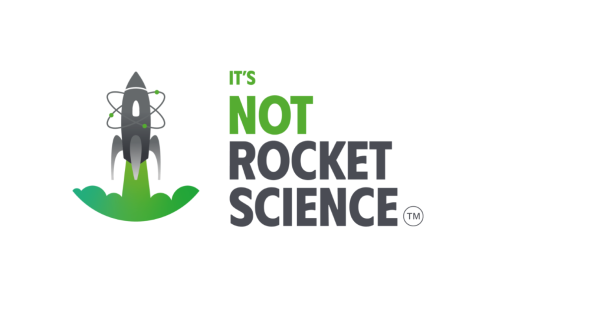Sitting comfortably in the Confluent des Savoirs meeting room, Aude Hansel (right in photo) and Natassia Schutz (left in photo), English teachers at UNamur's School of Modern Languages, answered our questions.
Why did you decide to launch the "It's Not Rocket Science" project?
In order to introduce our students to scientific English, we came up with the idea of placing them in the position of creators of popularized content. Students are asked to work on cross-disciplinary subjects that address current issues. The subjects chosen are directly related to the discipline in which they are enrolled. Students apply their knowledge through an English course anchored in their field of study, starting in Block 1.
An ambitious project involving multiple skills. Is managing such a project in the midst of other work and classes something that Block 1 students manage well?
It is indeed a time-consuming project, both for them and for the teaching and supervisory staff (laughs). But we see the benefits that our students can derive from it for their career paths. At a time of transition from high school to a bachelor's degree, we help them to manage their methodology and their time. Students learn to collaborate, to give feedback to each other and to teachers, and to work with other departments and colleagues at UNamur. In this way, they discover other professions and skills, learn the codes of popularization, how to make a storyboard, manage the stress of speaking in front of a camera... It's an exercise in soft skills. This project mobilizes talents and develops creativity, which should be encouraged. Even if it requires more investment, we are convinced that this activity enhances the work of our students, encouraging them to surpass themselves and gain self-confidence. It's a human and enriching project in many ways, and one that brings a great deal of satisfaction.
A project "made in UNamur" but one that's getting people talking! You've presented the project at a number of pedagogical events, haven't you?
Indeed! The project was a finalist in #LUDOVIAEXPRESS2023, a competition organized by the Agence wallonne du Numérique, which aims to promote digital technology in education. We also presented the project at scientific conferences and workshops in Stockholm and London. These events provided an opportunity to present this UNamur initiative and to exchange views with other language teachers in universities on educational issues such as the transition to digital, as well as the learning of scientific English.
How do you see things for the coming years?
The project's ambition is to be accessible to as many UNamur students as possible thanks to the implementation of a Transversal Teaching Unit (UET), an elective course open to all and in line with the promotion of the STEAM approach and the values of the UNIVERSEH alliance. Secondary school teachers will also be more involved in the project. Indeed, they have already been provided with a lesson plan adapted to their students, enabling them to evaluate the UNamur students' videos in class. These pilot classes are enthusiastic about the video clips produced by the UNamur students, and are asking for more. We firmly believe in transversality to give students a taste for science, a desire to learn and practice English, and we intend to broaden the target audience.
What inspires you most about this project?
At every stage of the project, we dream. We dream and then...often, it works... At every stage, we try to go further. We get very involved. We feed off the students' motivation. The task takes on its full meaning for them when we're involved in an authentic approach, in a real-life situation.

